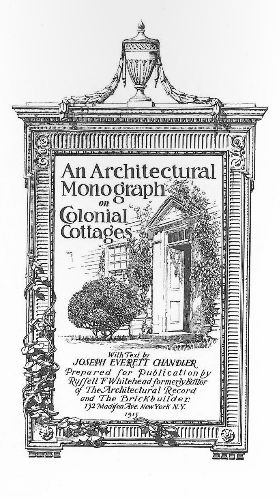 The World War I era was an interesting time to be a part of the wood products industry, to put it lightly. In the Northwest, during a major timber worker strike organized by unions International Workers of the World and the American Federation of Labor, the U.S. Army took it upon themselves to keep production going.
The World War I era was an interesting time to be a part of the wood products industry, to put it lightly. In the Northwest, during a major timber worker strike organized by unions International Workers of the World and the American Federation of Labor, the U.S. Army took it upon themselves to keep production going.
The strike shut down 90% of timber operations in some areas, all while the government was in need of lumber for its first fleet of military airplanes, ships, encampments and other infrastructure. The Army formed the ‘Spruce Production Division,’ assigning enlisted soldiers to work in logging camps and mills. When the war ended and regular work resumed, logging companies took advantage of the new logging roads and rail lines the division had built, helping to grow the industry.
What was happening in the Upper Midwest and the Northeast at the same time? Nothing quite so dramatic, though the war effort definitely compounded a general labor shortage and diverted many railroads for government usage, causing distribution headaches. In 1918, Sherman L. Coy, assistant general manager of the Northern Lumber Company, wrote an op-ed in the White Pine Monographs that sheds an interesting light into this period of time.

Here’s the text in full:
“If there was ever a time when extreme patience, forbearance, and the united efforts of each of us were called for, it is to-day. Never before have we been obliged to face such a condition as now confronts us, and we must demonstrate our unswerving loyalty to the government. Which means our willingness to give and take as occasion may require, without complaint – to sacrifice personal interest and convenience for the greater welfare of the Nation – for team work will win the war.”
“There is every reason to believe that the present abnormal conditions will remain as normal codifies for a considerable time ad there will be may opportunities to show where we stand. We must be as that man in a group of men ad some who were talking about henpecked husbands. His wife said to him, ‘You’re not henpecked, are you, John?’ He replied, ‘No, indeed. I like it.’”
“To-day countless difficulties are presenting themselves to the lumber manufacturer in the logging and manufacture of this product. In some way these difficulties must be and are going to be met. The ideal solution will not always be possible, but in all cases the most satisfactory substitute must be accepted.”
“Transportation problems, however, are becoming increasingly difficult, and it will require the close cooperation of the dealer and the manufacturer to effect a workable solution. The manufacturer has lumber to sell which the dealer is going to want, and which the manufacturer wants him to have. But with the embargo at present in force by the railroads and with the probability that there will be others before conditions are improved, the situation calls for the closest understanding and cooperation between manufacturers and retailers. We must be patient with one another and with the Government in its direction of railway transportation. Not only are shipments to certain points by specified routes just now impossible because of the embargo, but it is very uncertain whether cars may be obtained for shipments outside the embargo zone. In many instances they are not to be had. Every order placed or lumber at the present time must carry with it the understanding that there can be no guarantee as to shipment.”
“The manufacturers are doing their best to move their stocks and to take care of the retail trade in the face of these handicaps. The car shortage, however, has been so acute that the planing mills have been able to operate only on part time, and the necessity has arisen for using flat cars to a very large extent. The use of ‘flats’ calls for extras in the way of stars and wire and means an added expense to the shipper, just as it not infrequently places a burden on the retailer through the exposure of its lumber to unfavorable water conditions. And there is further necessity of placing only orders which will permit of capacity loading, even though this may sometimes mean that the dealer carries a larger stock than he ordinarily requires. But with a patriotic spirit the existing situation can be met so as to cause no real hardship to anyone.”
“There is one encouraging feature in the situation. The problems of the lumber industry are no worse than those the many other businesses are obliged to meet – perhaps not as difficult as some. Lumbermen are not slackers. They are going to meet their problems squarely for the Government and with fairness to each other. There is White Pine in abundance, and while labor and transportation difficulties may retard its movement temporarily, they cannot stop it. The big, wide areas that will recognize it always as the best of all woods must and shall be supplied.”


